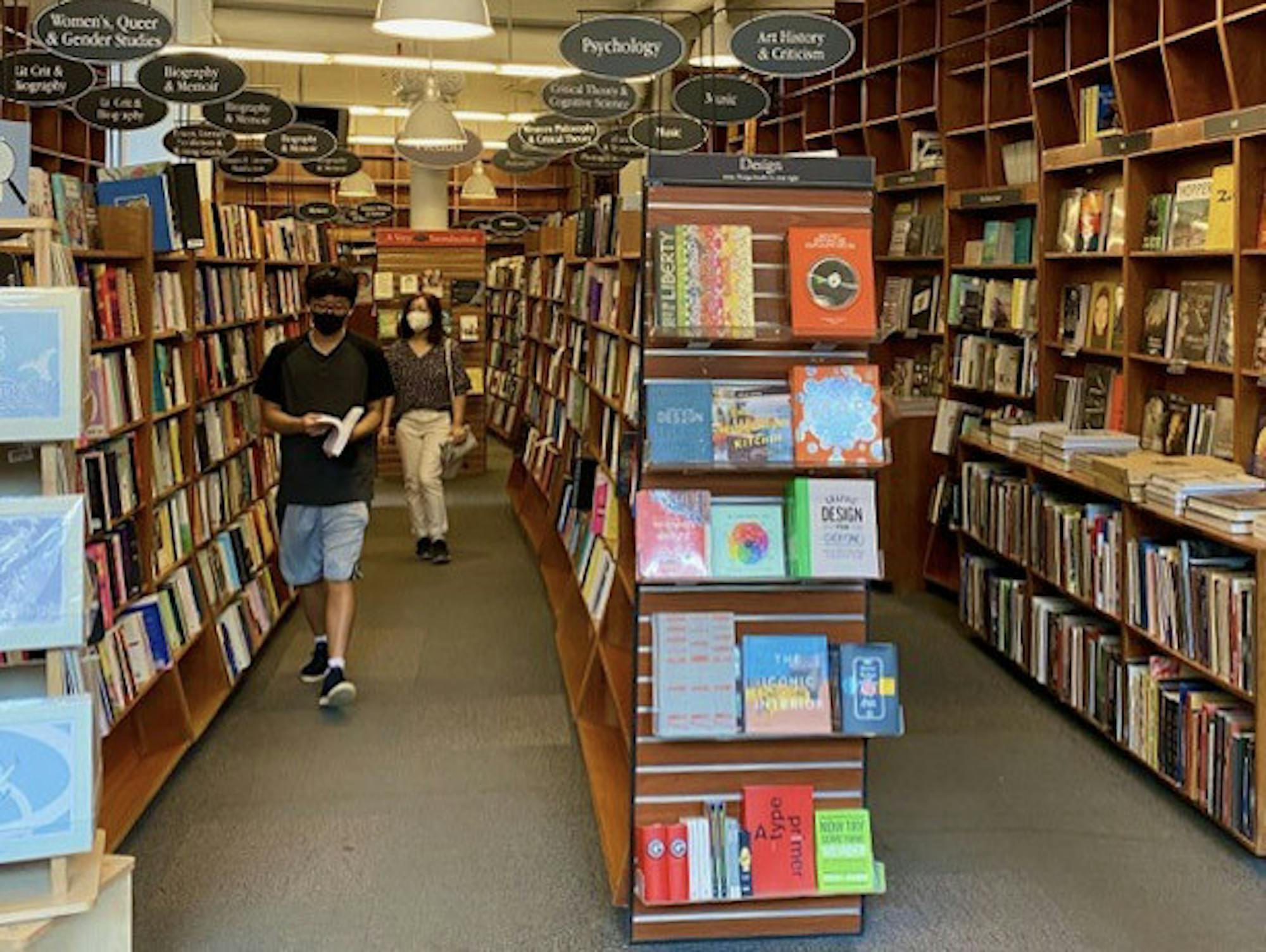Strand Book Store in New York City, a giant in the independent bookstore world that has been open for 93 years,announced on Oct. 23 that it needed help from the local community urgently because sales were down 70%. Luckily, the weekend after the letter was sent, it received 25,000 online orders and had huge lines to get in. The community support was insane.
The Strand isn’t the only bookstore that has called on its community for help. Shakespeare and Company in Paris, a famous bookstore modeled after Sylvia Beach’s in the early 20th century that was a hangout spot for authors like Ernest Hemingway and James Joyce,also had to appeal to its customers for support. Amber Unicorn Books in Las Vegas isclosing after 39 years in business, and The Book Nook in Michigan isclosing after 50 years of business. Sadly, Publishers Weekly is stocked full of these stories.
As the year goes on and COVID-19 continues to affect in-person selling and printing availability, bookstores have had to find new routines and sales options for customers in order to keep revenue up. Bookstores a little closer to home in Boston are experiencing similar struggles, though many of them have found ways to persevere even though they continue to have reduced hours and new COVID-19 protocol expenses.
One new program created by Porter Square Books is called “Shop with Your Pod,” which gives a group of up to 10 people the ability to be in the store on its own for an hour.
“It’s good for business,” David Sandberg, who co-owns Porter Square Books with his wife Dina Mardell, said. “But the main reason why we did it is there’s a lot of people, especially with the holidays coming up, that still don’t feel comfortable being in the store in public.”
Porter Square Books also began publishing a specialty newsletter called Shelf Stable early on in the pandemic. This helped the bookstore stay connected to its community by talking about books but also personal experiences. Initially being a daily publication when the pandemic began, the newsletter now runs a few times a week.
“We got more positive reactions from customers about this newsletter than almost anything we’ve done online,” Sandberg said.
A central part of bookselling is person-to-person interaction; however, COVID-19 limits this. The bookseller is not placing books into your hands which changes how they do their jobs. Harvard Book Store General Manager Alex Meriwether talked about how the store has adapted to this new type of selling.
“Our staff ... [has shown] a tremendous amount of ingenuity and resilience and make it work even though it’s difficult,” he said.
Customers have also responded to bookstores’ attempts to still create community in their spaces.
“We’ve had some remarkable Yelp reviews since we reopened that honestly have brought tears to our eyes, just how meaningful the interaction with our staff has been for people and how meaningful being in a bookstore has been for people,” Meriwether said.
As with many stores, holiday season sales are crucial. Not only does lower in-store capacity threaten the amount of sales bookstores can have, but there are also all sorts of supply chain issues because of COVID-19 that create problems with bookstores not having enough of the ‘hot ticket’ titles. If printing is decreased and bookstores cannot get more of a specific title that they otherwise would have sold, this could severely impact their sales.
Porter Square Books is dealing with the possibility of lowered printing by ordering more books than they normally would.
“Books especially that we know are going to be big ... we’ll order twice as many as we might have otherwise,” Sandberg said. “Normally you’d do a big upfront order and then as you need you’d slowly order more as you sold them, but now we don’t want to take the chance that ... we can’t get them.”
Another way bookstores are adjusting is by extending their holiday season. Harvard Book Store decided to spread out its holiday shopping and sales across October and November. It had its annual sale that is usually a one day in store and online event over three days instead. Harvard also sent a letter to customers asking for support like the Strand and Shakespeare and Company.
And the response was extraordinary. People showed up, supporting it with all their might. On the Sunday of the sale, Meriwether said they sold over 10,000 books and had 40 times the online sales from the previous Sunday. Just that weekend is representative of the widespread community support that bookstores like Harvardneed and receive.
“We really saw the support of our community with that letter ... and we’re going to do our best to keep reminding folks that we need that sustained support and we’re going to work hard to be the best we can be for them,” Meriwether said.
In order to deal with the influx of online orders, Harvard Book Store has created socially distanced workspaces in the used book basement and has temporarily closed the used book basement to the public. Even though this part of the store is closed, Meriwether discussed how used books were not really selling right now anyway — therefore, closing the basement to make workspaces was the best option.
Situations with COVID-19 are constantly changing. Therefore, stores have to stay on their toes.
“Going into this winter, it’s hard to know what in-person shopping is going to be like … [so we’re] noticing trends and developing efficiencies where we can, but knowing things will keep changing,” Meriwether said.
Within all of the uncertainty and sad news, there are these stories of resilience and community support that give independent bookstores hope. Nonetheless, it is important, now more than ever, to continue supporting these community staples by doing holiday shopping with them — and not using Amazon to purchase books.






